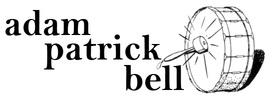Like a lot of people I really like the podcast Song Exploder and decided to try out a couple of new assignments related to it this semester. I currently teach college music students, but I'm sure these assignments could be modified (and reworded) to work for younger students.
Assignment 1: Song Exploder Episode Explication
The idea behind this assignment was to serve as a primer for Assignment 2. Our class frequently focuses on production, and Song Exploder provides a window into how musicians use technology for musical ends. The studio—broadly defined—is the instrument of the 21st Century musician, and Song Exploder episodes tell us about how they play it. If we want to be like the musicians we look up to, we need to do what they do.
Skills Called Upon: Peer teaching, public speaking, critical listening, audio literacy, summary and synthesis of the "text" (in this case an audio text).
Instructions to Students: We will each call dibs on an episode of Song Exploder and become experts on our chosen episodes. In class you’ll play the piece of music analyzed (if the selection is more than 5 minutes we may need to play just an excerpt of it) and draw our attention to what you think is the most salient aspect of this piece of music’s production based on the dialogue portion (the explication) of your Song Exploder episode. Note: In what order this is done is up to you.
It may be helpful to think of yourself as a guide in this exercise, you’re trying to point our attention in a specific direction. Tell us what to keep an ear out for and then explain to us how it was accomplished. This may require a little extra research such as looking up what the technology used does, looks like, or costs (or whatever you deem relevant), but keep in mind that this is just a short exercise to whet our appetites; we don’t need the whole buffet.
Example: In my opinion (and yours may differ) the most salient aspect of the Björk episode is when she mentions audio editing as musicianship:
Assignment 1: Song Exploder Episode Explication
The idea behind this assignment was to serve as a primer for Assignment 2. Our class frequently focuses on production, and Song Exploder provides a window into how musicians use technology for musical ends. The studio—broadly defined—is the instrument of the 21st Century musician, and Song Exploder episodes tell us about how they play it. If we want to be like the musicians we look up to, we need to do what they do.
Skills Called Upon: Peer teaching, public speaking, critical listening, audio literacy, summary and synthesis of the "text" (in this case an audio text).
Instructions to Students: We will each call dibs on an episode of Song Exploder and become experts on our chosen episodes. In class you’ll play the piece of music analyzed (if the selection is more than 5 minutes we may need to play just an excerpt of it) and draw our attention to what you think is the most salient aspect of this piece of music’s production based on the dialogue portion (the explication) of your Song Exploder episode. Note: In what order this is done is up to you.
It may be helpful to think of yourself as a guide in this exercise, you’re trying to point our attention in a specific direction. Tell us what to keep an ear out for and then explain to us how it was accomplished. This may require a little extra research such as looking up what the technology used does, looks like, or costs (or whatever you deem relevant), but keep in mind that this is just a short exercise to whet our appetites; we don’t need the whole buffet.
Example: In my opinion (and yours may differ) the most salient aspect of the Björk episode is when she mentions audio editing as musicianship:
Clearly, in Björk's case editing constitutes the musical action she engages with most. The takeaway is simple, but significant: we should perceive editing to be musical and we can expect to spend a lot of time editing if we aspire to be like Björk.
Assignment 2: Implode/Explode
Listening to Song Exploder episodes is a great education, but making your own Song Exploder episode is a better education. Surely, the person with the best grasp of an artist's working processes featured in Song Exploder (aside from the artists themselves - and that could be debated, too) is Hrishikesh Hirway because he makes the episodes. By sifting through the interview files and editing them down to create a cohesive storyline you're essentially making an argument based on the evidence you have.
At the risk of stating the obvious, this assignment can only work if students make music that they can later "explode." My class spends the first half of the semester working on an assignment called The Song Machine based on the work of John Seabrook (see the previous post), so by the time they get to this assignment they have something they've worked on that they can "explode."
Skills Called Upon: There is so much skill development in the different processes of this assignment, but broadly speaking they fall under the umbrella of production/composition (especially editing). This is a great opportunity to discuss with students what the ever-evolving role of production entails.
Instructions to Students: If “exploding” is the dissection of a piece of music, then I suppose “imploding” (def. ‘bursting inward’) is the process of putting it together (I like the image of music creation being this inward bursting of musical ideas). Anyway, the point is that in the first phase of this assignment--implode—you’ll make some music using the studio as instrument. You’ll have a few opportunities to do this in our weekly work, especially with the Song Machine Assignment.
In the second phase, with the help of a classmate, you’ll explode your piece of music, that is, you’ll break it down for us a la Song Exploder. After listening to a few episodes of Song Exploder you’ll soon discover that artists' approaches to making music vary tremendously. However, you’ll also notice that there is an interdependent relationship between realizing a musical idea and utilizing music technology to do so. Sometimes the technology itself seems to be the impetus for the idea, whereas other times the artist has a concept in mind that they try to realize by harnessing technology.
Your classmate’s role in this process is to interview and record you about your selected piece of music and how you made it. You need to do this with your session or stems within reach so that you can solo tracks to exemplify the concepts you’re discussing. In the interview, I suggest trying to cover a few (3 to 4) big ideas/concepts/strategies employed in the music-making process. After the interview process is completed you’ll want to edit down your recorded discussion to be 4-5 minutes long. You’ll then simply combine the dialogue and music into one audio file, and you’ll have created your very own episode to share with us.
Listening to Song Exploder episodes is a great education, but making your own Song Exploder episode is a better education. Surely, the person with the best grasp of an artist's working processes featured in Song Exploder (aside from the artists themselves - and that could be debated, too) is Hrishikesh Hirway because he makes the episodes. By sifting through the interview files and editing them down to create a cohesive storyline you're essentially making an argument based on the evidence you have.
At the risk of stating the obvious, this assignment can only work if students make music that they can later "explode." My class spends the first half of the semester working on an assignment called The Song Machine based on the work of John Seabrook (see the previous post), so by the time they get to this assignment they have something they've worked on that they can "explode."
Skills Called Upon: There is so much skill development in the different processes of this assignment, but broadly speaking they fall under the umbrella of production/composition (especially editing). This is a great opportunity to discuss with students what the ever-evolving role of production entails.
Instructions to Students: If “exploding” is the dissection of a piece of music, then I suppose “imploding” (def. ‘bursting inward’) is the process of putting it together (I like the image of music creation being this inward bursting of musical ideas). Anyway, the point is that in the first phase of this assignment--implode—you’ll make some music using the studio as instrument. You’ll have a few opportunities to do this in our weekly work, especially with the Song Machine Assignment.
In the second phase, with the help of a classmate, you’ll explode your piece of music, that is, you’ll break it down for us a la Song Exploder. After listening to a few episodes of Song Exploder you’ll soon discover that artists' approaches to making music vary tremendously. However, you’ll also notice that there is an interdependent relationship between realizing a musical idea and utilizing music technology to do so. Sometimes the technology itself seems to be the impetus for the idea, whereas other times the artist has a concept in mind that they try to realize by harnessing technology.
Your classmate’s role in this process is to interview and record you about your selected piece of music and how you made it. You need to do this with your session or stems within reach so that you can solo tracks to exemplify the concepts you’re discussing. In the interview, I suggest trying to cover a few (3 to 4) big ideas/concepts/strategies employed in the music-making process. After the interview process is completed you’ll want to edit down your recorded discussion to be 4-5 minutes long. You’ll then simply combine the dialogue and music into one audio file, and you’ll have created your very own episode to share with us.


 RSS Feed
RSS Feed